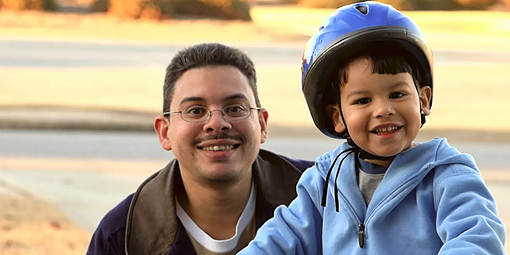A child’s happiness starts with a firm foundation of love, security, and self-esteem. Here are some thoughts from child care experts that will put you on the right track as your child grows.
Every child should feel special and appreciated. Making a child feel real special contributes significantly to the child’s self-image, confidence, and resiliency. An adult who focuses on a child’s strengths, while not ignoring a child’s problems, can make a big difference to his or her current happiness and future developments. Set aside special times during the week to be alone with your child and focus on activities the child enjoys, allowing him or her to display special strengths.
Help develop problem-solving skills. Self-esteem goes hand-in-hand with a child’s ability to solve problems, whether big or small. Get in the habit of discussing day-to-day problems that your child may encounter. Even if the solution is obvious to you, let him or her think about a couple of ways of solving the problem. Don’t worry if the solutions don’t come immediately.
Don’t judge. Avoid comments that are judgemental and try to put feedback in a positive light. For example, if your child is having trouble mastering something, a comment like, “You’ll just have to try harder and put in more effort,” assumes they aren’t trying and that something is wrong with them. Many children do try hard and still have difficulty. Try an approach like, “Let’s try and figure out a different way to help you learn.” Children are less defensive when they feel the problem is shared by others.
Have empathy. How often, out of your own frustration, have you said something like, “Why don’t you listen to me?” Even if the solution is obvious to you, let him or her think about a couple of ways of solving the problem. You can also try role-playing situations with your child to help demonstrate the steps involved in problem solving.
Provide choices. Let your child develop the habit of making decisions that affect him or her. For example, ask if he would like to be reminded 10 or 15 minutes before bedtime to start getting ready, or if she wants to wear the red or green sweater. These early, simple choices help build the foundation for future responsibility and self-destiny.
Never compare. Avoid comparing your child to other children, especially siblings. Negative comparisons damage self-esteem while overly positive ones can distort your child’s perceptions of others.
Highlight your child’s strengths. Children sometimes view themselves in a negative way, especially in terms of learning, abilities, and accomplishments. But every child has one or more areas in which they shine (either through ability or pure enjoyment). Make a list of your child’s strengths and talents and find ways to reinforce them. For example, if your child is a talented artist, make sure to display his latest painting.
Allow your child to contribute. Children, by nature, want to help and be involved. Seeing that help appreciated by others is a great boost to self-esteem. Providing opportunities for children to contribute to family activities, a parent’s hobby, or other activities are concrete ways of acknowledging that they have something to offer. Put aside or even create tasks that your child can help out with.
Set realistic expectations and goals. Having realistic, achievable expectations provides your child with the ability to experience success as each goal is reached. This, in turn, gives a sense of control over life. With this comes confidence and self-esteem.
**Praise and support your child. **Praise your child but do so moderately. Praise conveys your values and attitudes to your child and sets expectations. If you fail to praise\, the message conveyed is that you don’t believe in them. Reasonable praise using words such as “smart\,” “creative\,” “kind\,” and “sensitive” sets expectations that are within your child’s reach. Words like “perfect\,” “the best\,” “most beautiful\,” and “brilliant” set impossible expectations leading a child to feel pressured.
Build resilience. Don’t try to hide or rescue your child from reality. A child needs to develop sensitivity and a certain “toughness” on their own. Being overprotective encourages dependency. Your child will learn to recover from failure and to build a resiliency that will help them triumph over adversity.
References:
- Latham, G. I.(1994). The Power of positive parenting. P&T Ink Printing.
- Shelov SP, et al. Family issues. In: Caring for Your Baby and Young Child: Birth to Age 5. 6th ed. New York, N.Y.: Bantam Books; 2014.
- Lopez, F. G. (1995). Contemporary Attachment Theory. The Counselling Psychologist, 23(3), 395-415.
- Cassidy, J. & Shaver, P.R. (2002). Handbook of Attachment: Theory, Research, and Clinical Applications. Guilford Press, NY.













